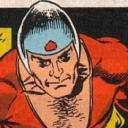3 Answers
See below.
| 14 years ago. Rating: 6 | |
I did hear years ago that a German pilot had to ditch in the sea and sent out a mayday. The poms answered asked his position and told him they were sending their Fokker Friendship. To which he replied "I don`t want your fokker freindship I want your fokker help"
| 14 years ago. Rating: 5 | |
For those interested the forerunner of SOS and the Mayday distress call was CQD, transmitted in Morse code as — · — · — — · — — · · and is one of the first distress signals adopted for radio use. It became effective, for Marconi installations, beginning February 1, 1904.
Land telegraphs had traditionally used "CQ" to identify messages of interest to all stations along a telegraph line, and CQ had also been adopted as a "general call" for maritime radio use. However, in landline usage there was no general emergency signal, so the Marconi company added a "D" to CQ in order to create its distress call. Thus, "CQD" is understood by wireless operators to mean, "All stations: distress." Contrary to popular belief, CQD does not stand for "Come Quick, Danger", "Come Quickly Distress", or "Come Quick - Drowning!".
Although used worldwide by Marconi operators, CQD was never adopted as an international standard since it could be mistaken for a general call "CQ" if the reception was poor. At the second International Radiotelegraphic Convention, held in Berlin in 1906, Germany's Notzeichen distress signal of three-dots/three-dashes/three-dots (· · · — — — · · · ) was adopted as the international Morse code distress signal. (This distress signal soon became known as SOS Germany had first adopted this distress signal in regulations effective April 1, 1905.)
Between 1899 and 1908 there were 9 documented rescues made by the use of wireless. The first distress call was simply 'HELP'. By February 1904, the Marconi Wireless Company required all of its operators to use 'CQD' for a ship in distress, or requiring URGENT assistance. In the early morning of January 23, 1909, whilst sailing into New York from Liverpool, RMS Republic collided with the Italian liner SS Florida in fog off the island of Nantuket, Massachusetts. Radio Operator Jack Binns sent a CQD distress signal by wireless (Morse code) transmission. His was the most famous use of the distress call and rescue using wireless prior to the RMS Titanic.
In 1912 RMS Titanic radio operator Jack Phillips initially sent "CQD", still commonly used by British ships. Harold Bride, the junior radio operator, jokingly suggested the new code SOS be used, thinking it might be the only time he would get to use it; Phillips then began to alternate between CQD and SOS. The rest is history as they say! As a radio Ham i still use the CQ as a general call and it is still recognised to this very day worldwide as the "genreral call" by radio hams.
| 14 years ago. Rating: 4 | |

 bulletman
bulletman
 6dogs4us
6dogs4us
 PEOPLELOVER
PEOPLELOVER




